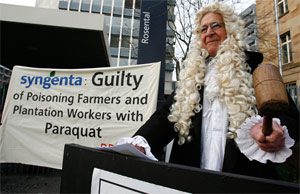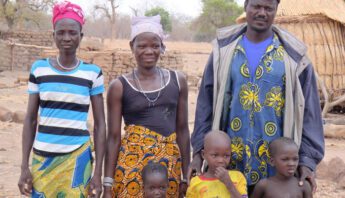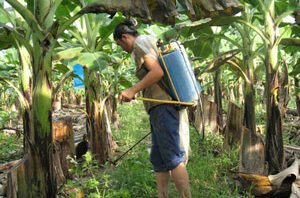When I hear news of Syngenta, my ears perk up. This corporate giant has poisoned my family's water with a pesticide that wreaks havoc on our hormone systems, and is linked to cancer and reduced fertility.
Atrazine, the culprit, can't be used in Europe because it sticks around in the water far too long for European standards. Yet Swiss-based Syngenta set up their North American Syngenta Seeds headquarters in a Minneapolis suburb to make sure they keep hold of the U.S. Midwest — all the while gobbling up seed companies and positioning themselves alongside Monsanto as major players in the genetically engineered (GE) seed market.
With U.S. farmers having a harder and harder time finding non-GE seed for our country's major crops, this arrangement looks to me like farmers forced into dependence on a multinational chemical and seed company. Last time I checked, this kind of ag-input market consolidation is bad news for rural economies, farm families, eaters and the land.
Bottom line: Syngenta sells chemicals around the world that make people sick and undermine rural communities. And few countries stand up and say no, even when their people are poisoned, or when their rural economies languish.
Burkina Faso just says "no"
Most recently, Syngenta has taken heat in the African nation of Burkina Faso, due to their pesticide paraquat. According to Swissinfo, farmers endure: ".. skin lesions, fever, respiratory and vision problems if inhaled, eye burns and vision problems after contact with eyes, abdominal pain, and vomiting and paralysis following ingestion." Researchers surveyed more than 600 farmers in three regions of the country, and found that among the more than 290 farmer poisonings, a Syngenta pesticide was to blame 20% of the time. (If only I were surprised.)
What does make me sit up and take notice, though, is that the government is taking a stand.
Burkina Faso is taking action to protect farmers by working to include the pesticide in question (paraquat) on an international treaty that protects access to environmental and health information, and affirms sovereign government rights to prior, informed consent (i.e., the right to say no!) when it comes to the import of hazardous chemicals despite the weight of multinational chemical corporations.
PAN International has worked to protect countries' right to prior, informed consent since we began in the '80's, and we continue to be active in the binding agreement that serves these ends, the Rotterdam Convention. Our colleague, Dr. Abou Thiam, Executive Director of PAN Africa, commented, "I am heartened to see the government of Burkina Faso standing up to protect farmer interests, rather than protecting the Syngenta corporation."
May we all know such a day.







